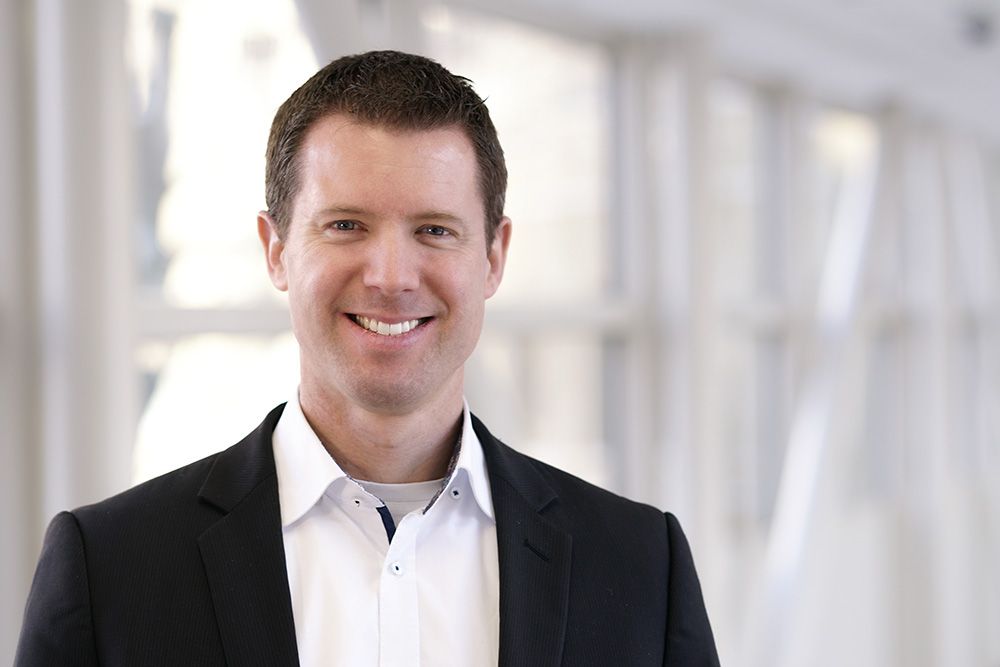Roswell Park’s Chief of Myeloma delivers updated clinical trial data at American Society of Hematology annual meeting
- Study enrolled patients whose myeloma relapsed after 3 or fewer prior therapies
- Strong responses seen even in patients with lenalidomide-refractory disease
- High-risk patients with early relapse experienced durable efficacy
BUFFALO, N.Y. — A single infusion of the CAR T cell therapy ciltacabtagene autoleucel produced deep, durable responses in multiple myeloma patients whose disease had progressed less than a year after autologous stem cell transplant (ASCT) or who experienced relapse after receiving up to three lines of initial therapy, as seen in the latest follow-up data for two cohorts of participants in the phase 2 clinical trial CARTITUDE-2 (NCT04133636, ASH 2023 abstract 1021). Jens Hillengass, MD, PhD, Chief of Myeloma at Roswell Park Comprehensive Cancer Center, will share the updated results in an oral abstract session Monday, Dec. 11, during the American Society of Hematology (ASH) annual meeting in San Diego, California.
FDA-approved in 2022 for the treatment of relapsed or refractory multiple myeloma with at least four prior lines of therapy, ciltacabtagene autoleucel (cilta-cel; brand name Carvykti) is a type of chimeric antigen receptor (CAR) T-cell therapy that engineers the patient’s own T cells to target the B-cell maturation antigen (BCMA), which is expressed on multiple myeloma cancer cells but not on most other cells.
CARTITUDE-2 was designed to evaluate the safety and efficacy of cilta-cel. Sponsored by Janssen Research and Development LLC and launched in November 2019, it enrolled 169 multiple myeloma patients, who were divided into eight cohorts with various characteristics. The current ASH presentation focuses on follow-up results for patients in two of those groups: Cohort A, who had received between one and three prior lines of therapy (LOT) and whose disease was refractory to lenalidomide, a standard of care medication, and Cohort B, who had relapsed a year or less after either autologous stem cell transplant (ASCT) or the beginning of initial anti-myeloma treatment if they did not undergo ASCT.
Follow-up data on those two cohorts were reported previously at 17 and 18 months, respectively. The oral abstract at ASH brings those data forward to April 2023.
At a median follow-up of 29.9 months and 27.9 months, respectively, 20 patients in Cohort A and 19 in Cohort B had received cilta-cel. Of those, 17 in Cohort A were MRD (minimal residual disease)-evaluable and all achieved MRD negativity, meaning that no residual cancer cells were detected using a highly sensitive test on bone marrow samples. In Cohort B, 15 were MRD-evaluable, and 14 (93%) achieved MRD negativity.
Overall response rates were 95% (complete response or better, 90%) in Cohort A and 100% (complete response or better, 80%) in Cohort B. Median progression-free survival was not reached in either cohort, and 24-month progression-free survival rates were 75% in Cohort A and 73% in Cohort B.
“This is an impressive finding, especially for biologically identified high-risk patients in Cohort B,” says Dr. Hillengass, first author on the new study. “In the previous Myeloma XI clinical trial, patients who relapsed within 12 months after autologous stem cell transplant had a median progression-free survival of 18 months and a median overall survival of 26 months.
“In addition, treatment in cohorts A and B of the CARTITUDE-2 study was relatively well-tolerated, with the usual expected side effects of cytokine release syndrome, immune-cell-associated neurotoxicity and hematologic toxicity.”
Dr. Hillengass and his colleagues continue to investigate the potential of anti-BCMA CAR T-cell therapy especially in earlier lines of therapy. He notes that Roswell Park participates in the phase 2, multicenter BMTCTN 1902 clinical trial (NCT05032820), which is evaluating bb2121 anti-BCMA CAR T-cell therapy in patients who have had a suboptimal response after ASCT and three months of maintenance therapy.
“We hope this will deepen their response and improve their survival outcomes,” notes Dr. Hillengass.
The study was co-authored by investigators representing institutions in eight countries.
Dr. Hillengass also will moderate session 651, “Multiple Myeloma and Plasma Cell Dyscrasias: Basic and Translational: Characterization of the MM and the Tumor Microenvironment,” an oral symposium, with Giada Bianchi, MD, Associate Director of the Amyloidosis Program at Brigham and Women’s Hospital/Dana-Farber Cancer Institute. The session will be held Dec. 9 from 4-5:30 p.m.
ASH 2023 Presentation Details
Time/date: Monday, December 11, 2023, 4:30 p.m. PST, San Diego Conference Center - Room 6A.
###
For further reading:
- Nivolumab Associated With Higher Progression-Free Survival in Pediatric Advanced-Stage Hodgkin Lymphoma
- Experts in Transplantation, Engineered Cells and Pediatrics Join Growing Roswell Park Cell Therapy Program
About Roswell Park Comprehensive Cancer Center
From the world’s first chemotherapy research to the PSA prostate cancer biomarker, Roswell Park Comprehensive Cancer Center generates innovations that shape how cancer is detected, treated and prevented worldwide. Driven to eliminate cancer’s grip on humanity, the Roswell Park team of 4,000 makes compassionate, patient-centered cancer care and services accessible across New York State and beyond. Founded in 1898, Roswell Park was among the first three cancer centers nationwide to become a National Cancer Institute-designated comprehensive cancer center and is the only one to hold this designation in Upstate New York. To learn more about Roswell Park Comprehensive Cancer Center and the Roswell Park Care Network, visit www.roswellpark.org, call 1-800-ROSWELL (1-800-767-9355) or email ASKRoswell@RoswellPark.org.
Rebecca Vogt, Media Relations Specialist
716-845-4919; rebecca.vogt@roswellpark.org
